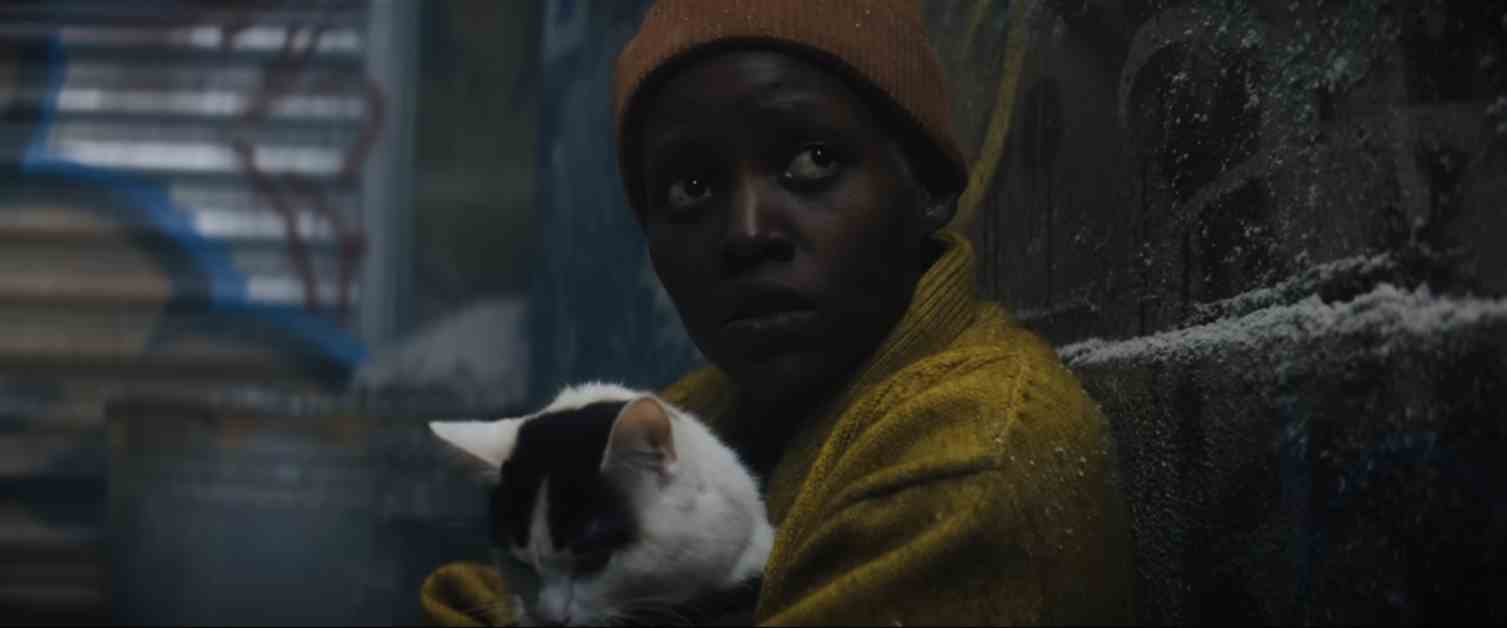Lupita Nyong’o Overcomes Fear of Cats Through ‘Cat Therapy’ While Filming ‘A Quiet Place: Day One’
In the upcoming film “A Quiet Place: Day One,” Lupita Nyong’o faces her fears not only of alien invasion but also of cats. Nyong’o, who initially had reservations about working with felines, underwent what she calls “cat therapy” to overcome her apprehension and develop a newfound love for the animals.
During a recent interview with Glamour, Nyong’o revealed how working with a cat in the film helped her grow as a person and as an actress. She shared that the experience of learning to understand and appreciate the furry companion was a transformative one for her.
Nyong’o also found support in her human co-star, Joseph Quinn, who plays a pivotal role in the film. The actress praised Quinn for his unpredictability as an actor, which kept their scenes exciting and fresh.
Reflecting on her own past experiences of overcoming insecurities, Nyong’o shared how her upbringing taught her the importance of having good partners in life. She opened up about being teased for her dark skin during her youth, and how she learned to build her character and confidence in response to the negativity she faced.
After filming wrapped, Nyong’o decided to adopt a cat of her own, named Yoyo, as a way to heal and find companionship after a difficult breakup. She explained that caring for Yoyo helped her to open her heart and embrace her feline side, leading her to understand why people have compared her to a cat in the past.
Nyong’o’s journey of facing her fears and embracing her vulnerabilities serves as a powerful reminder of the importance of self-discovery and personal growth. As she prepares to share her transformative experience with audiences in “A Quiet Place: Day One,” Nyong’o continues to inspire others to confront their fears and find strength in vulnerability.

